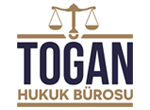TOĞAN LAW OFFICE
MOBBING
What is Mobbing?
Mobbing literally means psychological violence, oppression, intimidation or distress, and by the Turkish Language Association, it says, “In workplaces, schools, etc. It is defined as targeting a certain person in communities, systematically blocking their work and causing uneasiness, intimidation, exclusion, dismissal. It can be done against subordinates, superiors or those of equal rank.
In order for the behaviors exhibited against the worker to be described as mobbing, they must be systematic, have connections between them, be a kind of war against the psychology of the person and finally intend to intimidate. The behaviors that disrupt the person’s dignity, are exclusionary and directed towards removal are examples of this. In this process, it has the purpose of abstracting the worker from his work and work environment and thus, the worker is asked to end the business relationship.
As it is known, the employer is obliged to take care of the worker, to protect and respect his personality and to provide an order in accordance with the principles of honesty in the workplace. Therefore, mobbing constitutes a violation of the employer’s obligation to oversee the worker. In this context, the worker may terminate the employment contract based on the violation of the contract for the right reason, and may also be entitled to moral compensation, if severance and notice compensation, as well as the conditions have been met.
Even if mobbing is not done by the employer, the employer’s responsibility does not disappear. Because the employer’s negligence behavior creates a violation of the contract. It is important to note that even if there is a right to compensation in disputes based on mobbing, it is very difficult to prove. The application of the Supreme Court is that if there are strong cases regarding the existence of mobbing, the right to compensation will arise.
In addition to these, mobbing may be included in crimes such as insulting, peace and tranquility, threats, sexual harassment, discrimination, violation of freedom of work and employment, even if it is not directly covered by the Turkish Penal Code. In this context, in addition to the claims for compensation, criminal complaints can also be filed.
